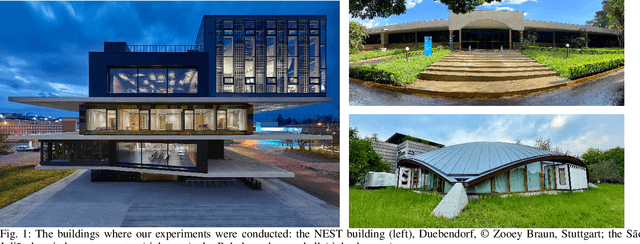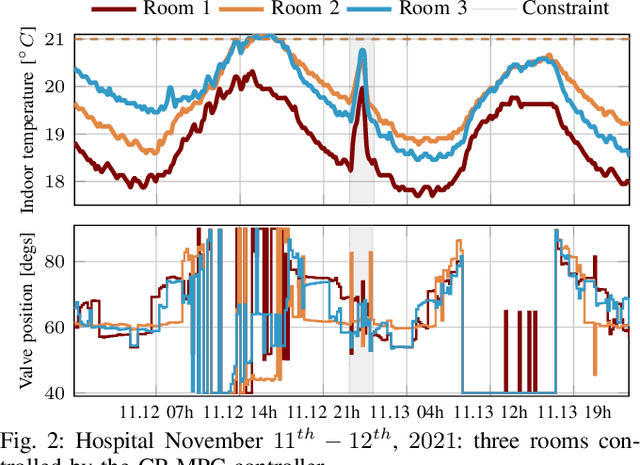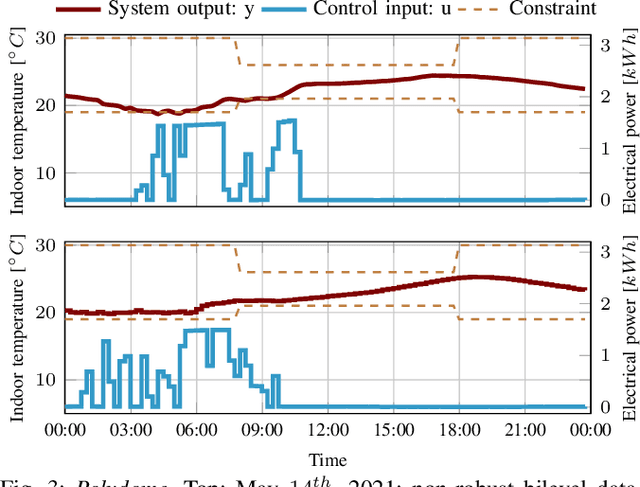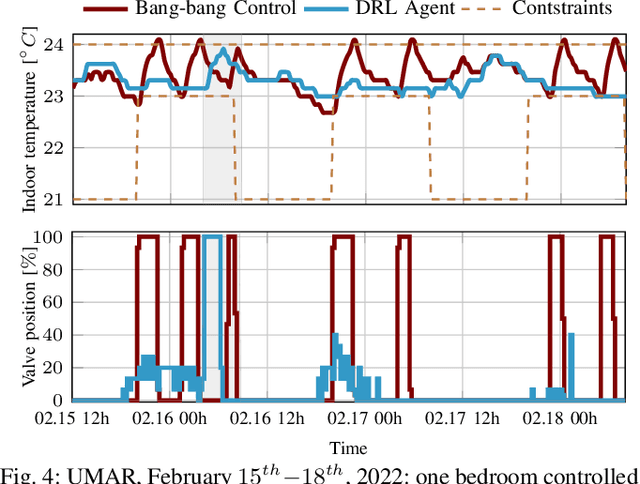Jicheng Shi
Which price to pay? Auto-tuning building MPC controller for optimal economic cost
Jan 18, 2025Abstract:Model predictive control (MPC) controller is considered for temperature management in buildings but its performance heavily depends on hyperparameters. Consequently, MPC necessitates meticulous hyperparameter tuning to attain optimal performance under diverse contracts. However, conventional building controller design is an open-loop process without critical hyperparameter optimization, often leading to suboptimal performance due to unexpected environmental disturbances and modeling errors. Furthermore, these hyperparameters are not adapted to different pricing schemes and may lead to non-economic operations. To address these issues, we propose an efficient performance-oriented building MPC controller tuning method based on a cutting-edge efficient constrained Bayesian optimization algorithm, CONFIG, with global optimality guarantees. We demonstrate that this technique can be applied to efficiently deal with real-world DSM program selection problems under customized black-box constraints and objectives. In this study, a simple MPC controller, which offers the advantages of reduced commissioning costs, enhanced computational efficiency, was optimized to perform on a comparable level to a delicately designed and computationally expensive MPC controller. The results also indicate that with an optimized simple MPC, the monthly electricity cost of a household can be reduced by up to 26.90% compared with the cost when controlled by a basic rule-based controller under the same constraints. Then we compared 12 real electricity contracts in Belgium for a household family with customized black-box occupant comfort constraints. The results indicate a monthly electricity bill saving up to 20.18% when the most economic contract is compared with the worst one, which again illustrates the significance of choosing a proper electricity contract.
Lessons Learned from Data-Driven Building Control Experiments: Contrasting Gaussian Process-based MPC, Bilevel DeePC, and Deep Reinforcement Learning
May 31, 2022



Abstract:This manuscript offers the perspective of experimentalists on a number of modern data-driven techniques: model predictive control relying on Gaussian processes, adaptive data-driven control based on behavioral theory, and deep reinforcement learning. These techniques are compared in terms of data requirements, ease of use, computational burden, and robustness in the context of real-world applications. Our remarks and observations stem from a number of experimental investigations carried out in the field of building control in diverse environments, from lecture halls and apartment spaces to a hospital surgery center. The final goal is to support others in identifying what technique is best suited to tackle their own problems.
 Add to Chrome
Add to Chrome Add to Firefox
Add to Firefox Add to Edge
Add to Edge